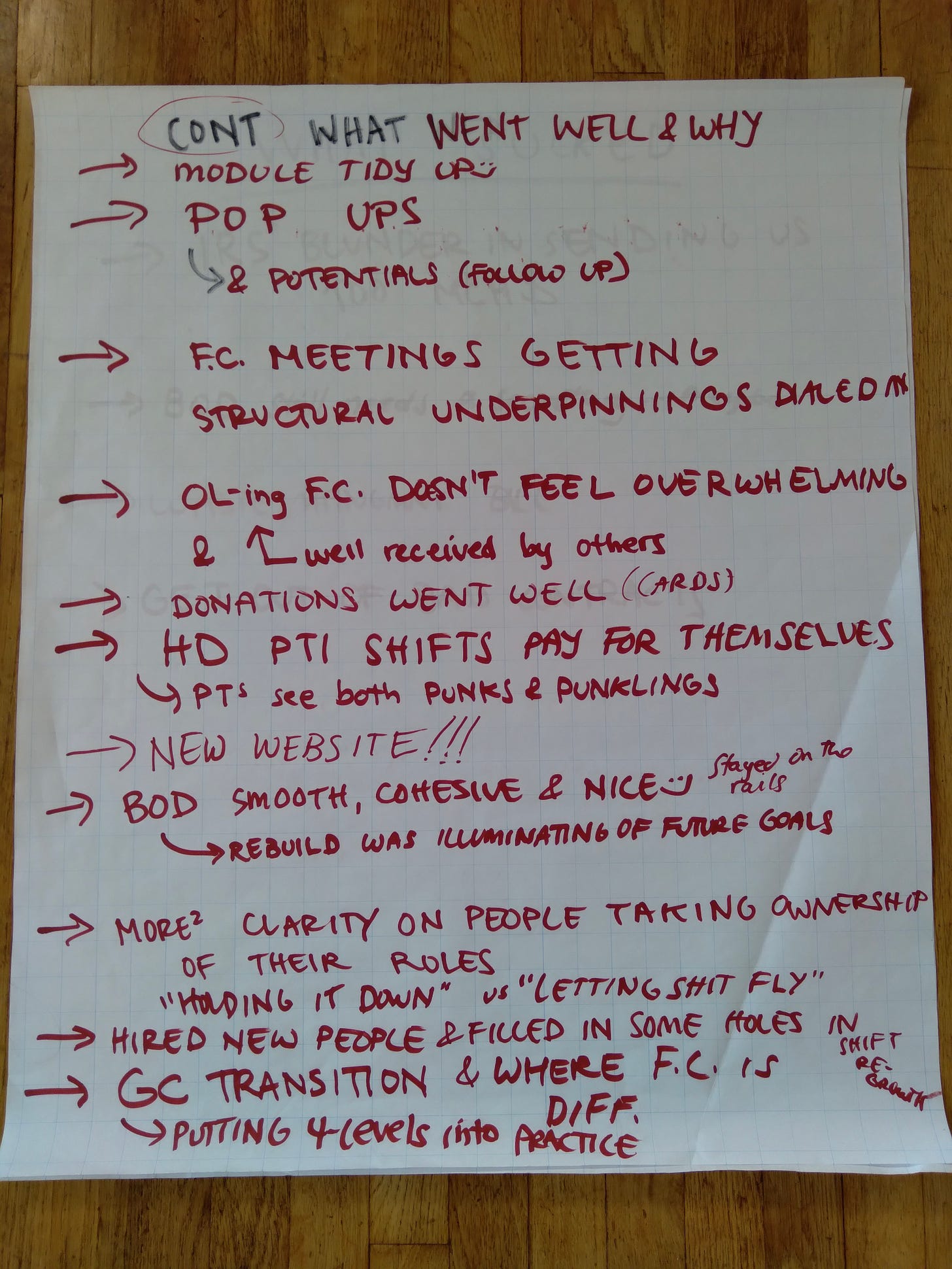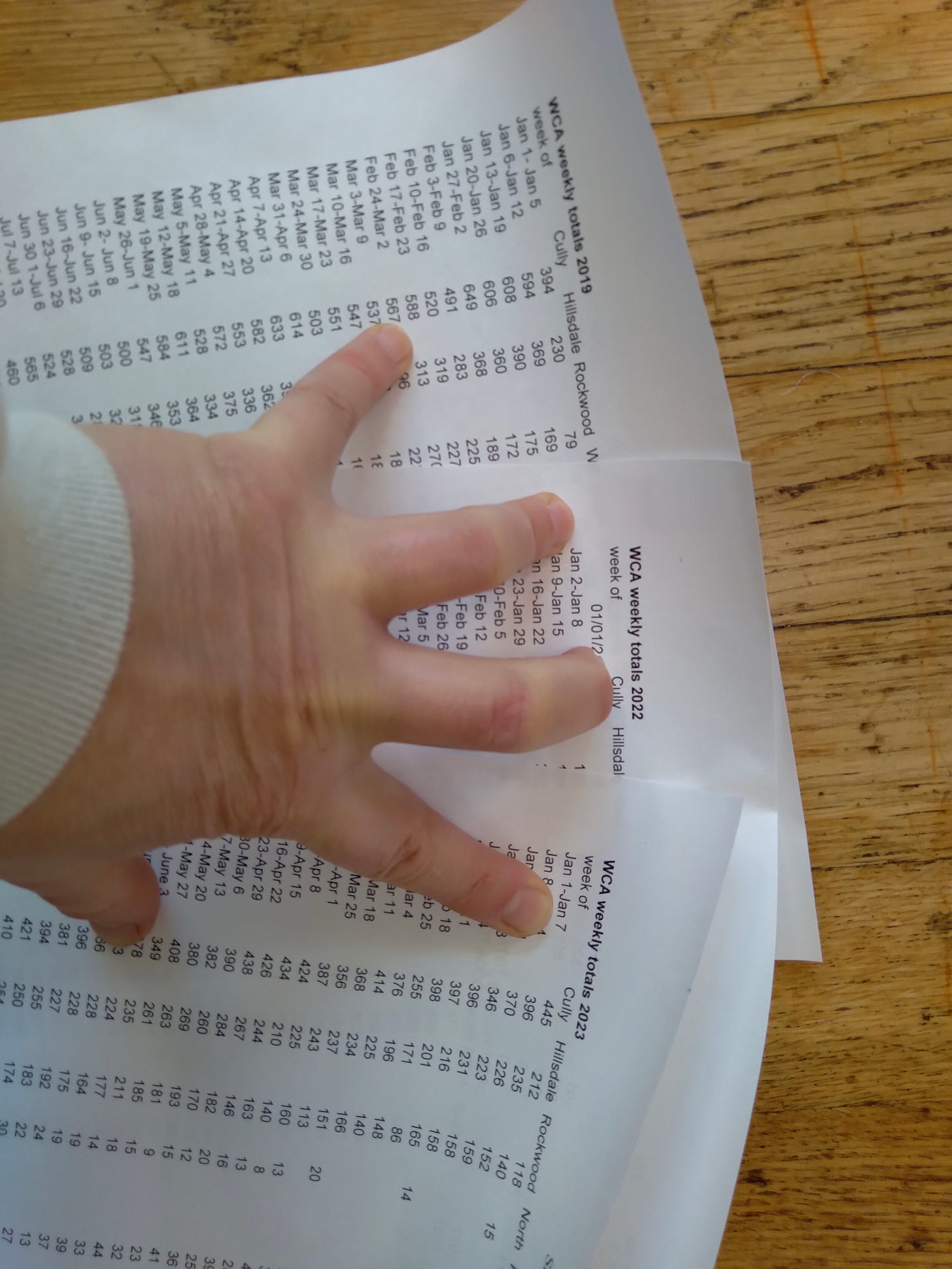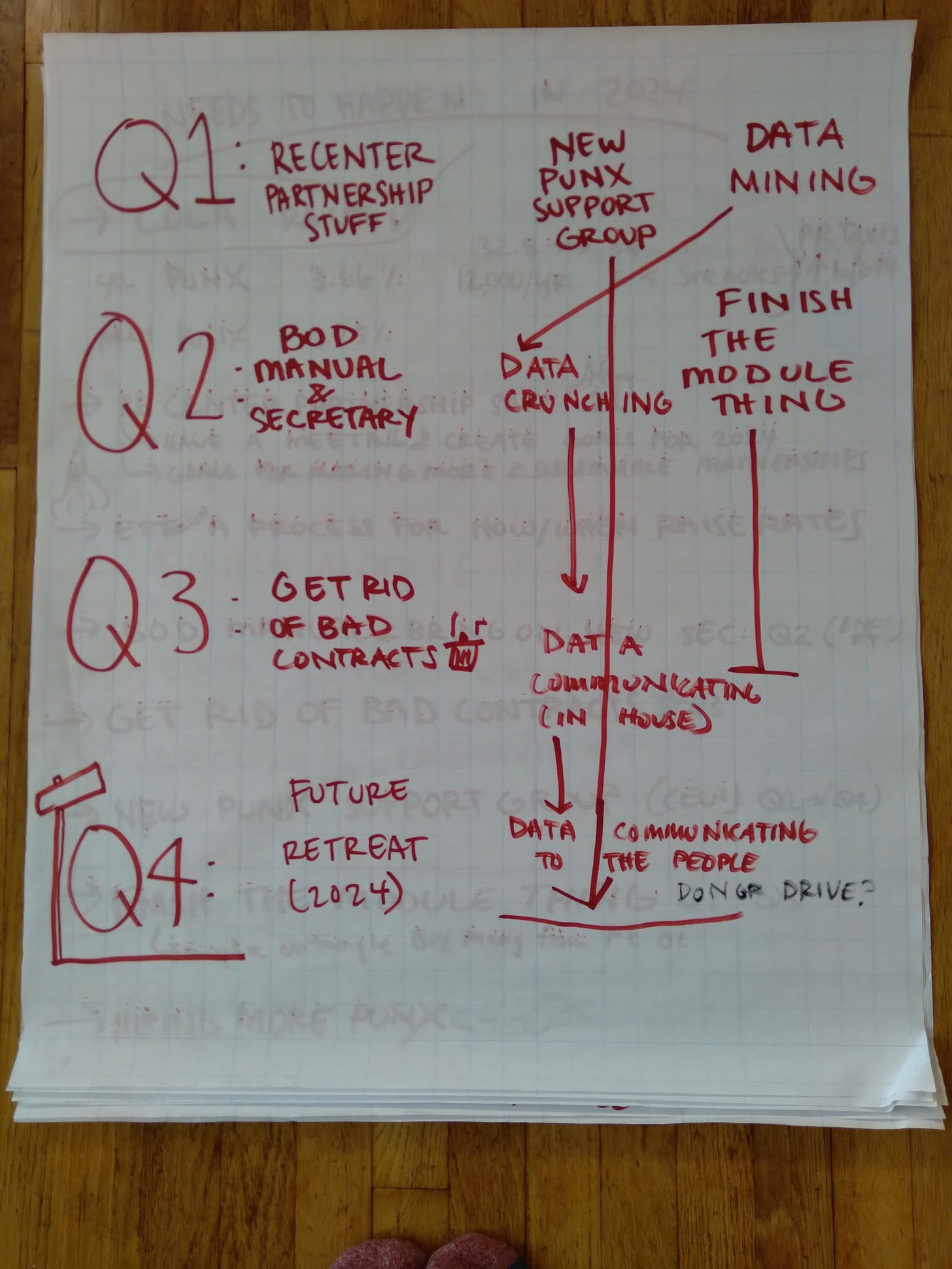WCA Numbers Part One
a report from our Finance Retreat

One thing I’ve learned about small business over the years is how important it is to intentionally put love into your organization’s systems — and to schedule the putting-in-love, to get it on the calendar and make sure it happens. This is especially important when it comes to numbers and money. Coaching is one way to do it; another way is getting people together for periodic review and recalibration.
WCA did the latter right before the solstice, with a year end Finance Circle retreat. (What’s a Finance Circle, you ask? Both WCA and POCA Tech are organized into semi-autonomous circles, loosely following a model called sociocracy, don’t click that link unless you want a deep rabbit hole.) I thought I’d share a little bit about what we did in our retreat, for anybody who’s interested in how we run our organizations.
We scheduled three hours on a Wednesday afternoon when all seven members of the Finance Circle could theoretically get together in my living room. For context, WCA has twenty employees so that’s just over a third of us; six of us were able to make it that day. We ordered some excellent Greek food from Samo’s Bistro (check them out if you’re in Cully) then we settled down with our laptops and a pad of giant sticky notes. We discovered that the newest member of WCA’s Finance Circle, Sara Biegelsen, has a knack for writing on giant sticky notes — thanks Sara!
First we made a list of everything that went well (and why) in WCA Finance in 2023. That took up three full pages; here’s the middle page:
Here’s my unsolicited opinion: if you’re running your business on a shoestring, train yourself to pay attention to and learn from what is going well. Don’t give yourself enormous lists of problems to fix, that’s just demoralizing and eventually you’ll collapse from exhaustion. Systematically collect all the good things and gaze on them with appreciation! The good things themselves will show you how to move forward. (Kind of like the pearl-stringing strategy, but for an organization.)
Next we made a list of everything that sucked (in part so we could mentally put it aside). That list was quite short, because this was a good year; it included a truly terrible contract we have with WCA Cully’s garbage haulers. Waste Management of Oregon, we are deeply disappointed in you.
We looked at WCA’s total treatment numbers pre-pandemic as compared to 2022 and 2023, so we could see how our COVID recovery is going. Our peak was in 2018 when we provided 64,758 affordable treatments. 2020 was 23,957 (ouch). 2022 was 39,903 and 2023 was 42,761. (Another point of comparison, post-retreat, is the free day we do on January 1st; in 2023 WCA provided 109 free treatments on the first day of the year, and in 2024, we provided 236. That’s mostly a reflection of more staffing, not more booking, but big progress regardless.)
I think of these numbers as an answer to a question that got asked regularly in 2020: “will COVID kill community acupuncture?”
We made a list of some long term goals for Finance Circle, then we identified some doable short term objectives for 2024 (including picking up some loose ends from 2023), and then mapped them on to the quarters. I love that part.
That’ll look great hanging on the wall of WCA’s back office, and it’ll help us stay on track during our monthly Finance Circle meetings.
One of the nicest things somebody said to me about this Substack is that it’s a bunch of love letters to community acupuncture. In most cases, community acupuncture is inextricable from small business (okay, acupuncture is mostly inextricable from small business) so I want to make sure the love letters include WCA’s small business aspects. In Consent and the Social Container I quoted a second year student who said, money is traumatic for a lot of people, which is true. All of us at WCA have had our own version of exposure therapy for money and business, and I think it’s useful to share examples of what that looks like. Sometimes, it looks like a few designated hours with giant sticky notes and good snacks.
Nobody on WCA’s Finance Circle had any kind of finance background before we signed up for this part of tending WCA’s social container. The most important part of wrangling the difficult math of a small acupuncture business is resolving to put love into it — and then following up on that resolve with boring organizational virtues like consistency, patience, attentiveness and regular communication. Love + structure x routine = incremental progress — even for scary topics like money. That’s not something I learned in acupuncture school but I hope our students are picking up on it! Stay tuned for more posts about WCA numbers in the new year.




